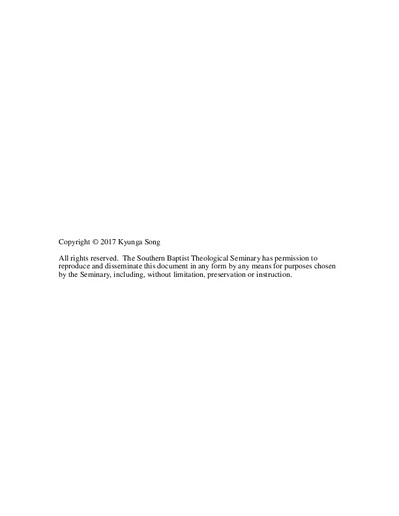| dc.description.abstract | The purpose of this dissertation is to propose such a comprehensive model of biblical forgiveness by interpreting biblical passages on forgiveness, integrating the various valid interpretations, and diachronically inspecting the concept through a redemptive-historical lens. Viewing the topic from a synchronic perspective, rather than a diachronic will show that the revelation of sin, covenant, redemption and law have been organically and progressively developed through biblical history in the context of the meta-narrative of creation, fall, redemption, and consummation. A redemptive-historical view reveals diverse forms of forgiveness according to different contexts; divine forgiveness which refers to God’s forgiveness of sinners and human forgiveness which refers to a human victim’s forgiveness of a perpetrator. The argument of this paper is that the revelation of forgiveness in the Bible has developed through redemptive history with shifts in emphasis (1) from divine to human forgiveness, (2) from a conditional to unconditional offer of forgiveness, (3) from justice-focused to love-focused forgiveness, and (4) from the offender’s responsibility to repent to the victim’s willingness to forgive, until divine forgiveness is finally revealed through Jesus Christ (Rom 5:8-11). Because biblical forgiveness — both divine and human— is built upon the revelation of each prior stage, its development should not be overlooked or reduced to the form of only one of the stages. | en_US |

